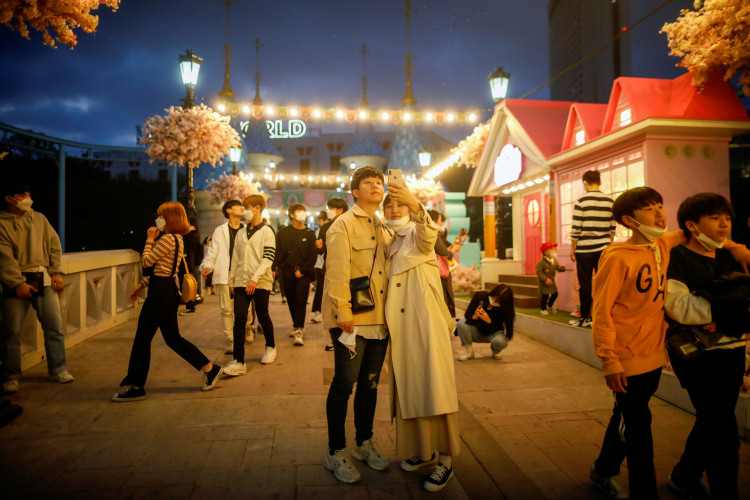South Korea's multicultural center in Seoul's Itaewon gave birth to a new coronavirus cluster that prompted the capital's officials to expanded contact tracing after the country celebrated weeks of COVID-19 infections below 20.
Nearly 120 Cases Linked to Itaewon Cluster
Seoul Mayor Park Won-soon on Wednesday reported that the total COVID-19 infections linked to nightclubs around Itaewon has reached 119, the Yonhap News Agency reported.
Of the total, 69 cases were found in Seoul, while 23 were reported in Gyeonggi Province. There were also four confirmed infections in Busan, five in North Chungcheong Province, 15 in Incheon, and on each in Jeju, North Jeolla Province, and in South Gyeongsang Province.
While there has yet to be a confirmed tertiary transmission from the Itaewon cluster, there have been nearly 29 confirmed COVID-19 cases who were secondary transmissions after the said cluster was detected earlier this month.
Authorities Track Potential Hidden Cases
Health authorities, in cooperation with the South Korean government, are moving fast to track down people who may have been in contact with "patient zero" of the COVID-19 cluster in Itaewon.
The government has been scrambling to track down around 5,500 people who may have been in contact with the 29-year-old patient who sparked the cluster infection in the Itaewon area, or those who have been in contact with the patient in question.
As of Wednesday, 43 of the 119 confirmed coronavirus cases linked to Itaewon nightclubs are acquaintances or family members of those who visited night clubs over the past two weeks.
The Korea Centers for Disease Control and Prevention (KCDC) revealed that around 22,000 people linked to the Itaewon outbreak have been tested for potential COVID-19 infection but there are still thousands of potential contacts to be traced and tested.
Thousands of S.Korean Police Deployed
Some 8,500 personnel from the South Korean national police agency have been deployed to take down the COVID-19 strain in Itaewon, Quartz reported.
The news came after Park warned of the crucial role that Seoul plays in the country's battle against the coronavirus. "If Seoul falls, the country falls," Park said.
The Itaewon cluster was detected after patient zero partied at various clubs in Itaewon from the evening of May 1 and throughout the early hours of the next day. He tested COVID-19 positive on May 6.
Roughly three days later, the Seoul government shut down all bars and nightclubs in the capital but cases from the Itaewon cluster have been rising over the past several days. Some health experts said there may be asymptomatic patients who need to be tested but are in hiding.
South Korea's COVID-19 Resurgence Can Teach Lessons to Other Countries
While South Korea was initially praised for its effective containment of the fast-spreading COVID-19 strain and its strict social distancing implementations, the resurgence in new cases stemming from the Itaewon cluster has raised concerns about how other nations will handle similar scenarios.
According to the TIME Magazine, some experts believe the second wave of new outbreaks in South Korea may become the "new normal" for some countries that are looking to reopen their economies.
Director of the Center for Policy Impact in Global Health at Duke Global Health Institute Dr. Gavin Yamey noted that there is a possibility easing of restrictions and tightening the regulations again will become a cycle.
However, Yamey and other experts believe that the most important thing should a resurgence take place is that countries are well-prepared for such situations.
As of Wednesday, South Korea logged a total of 10,962 confirmed COVID-19 cases and 259 deaths.





